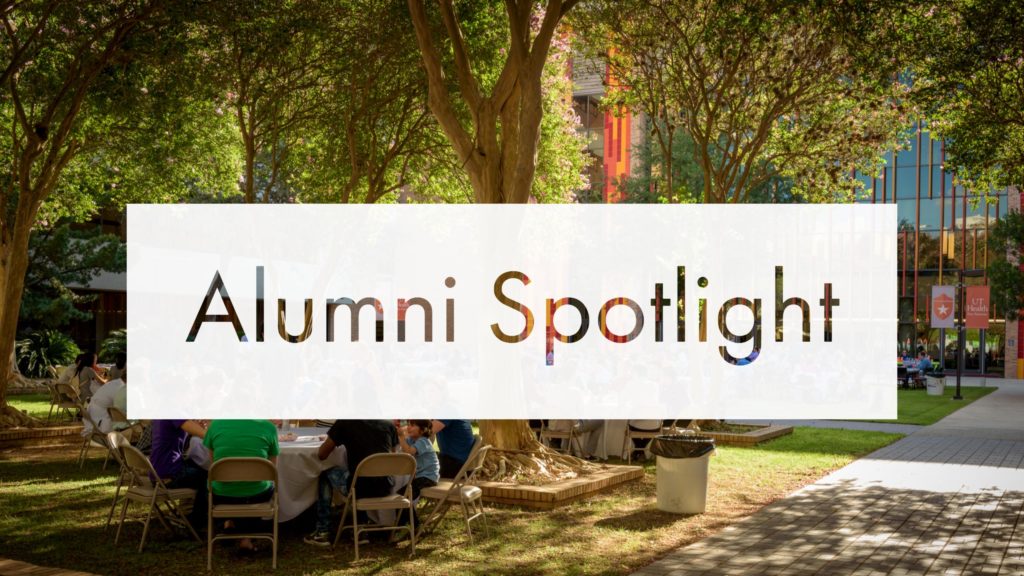GSBS Alum Captain Elaine Por Speaks about the Military

Captain Elaine Por first became interested in science as an undergraduate, leading her to change her major from computer science.
“I started taking undergraduate biology classes and the lab assistants/graduate students sparked my interest because they had this incredible enthusiasm for science. I had never thought about going into science or research before that,” Captain Por explained.

After obtaining her Bachelors in Science from Texas State University and her Master of Science from Kangwon National University, she decided to attend the University of Texas Health Science Center in San Antonio.
“I had applied to different schools but when I came for my recruitment weekend, I was really impressed with the different types of research going on. When I began graduate school, it was the first year of the IMGP program, which lets you enter undecided and select the research track of
interest to you.”
Although she had initially planned to continue her graduate research in Cancer Biology, Captain Por explained that she was impressed by the pain
research conducted in Dr. Nathan Jeske‘s lab.
My first lab rotation ended up being my dissertation lab. I was really impressed by the project and what Dr. Jeske had going on at the lab at the time,” she said. “The thing I really enjoyed about Dr. Jeske’s lab was that he uses a variety of techniques from the very basic such as Western Blotting, PCR, and cloning to advanced techniques such as neuronal primary cultures and
calcium imaging. That’s what got me to stay.”
Currently, she works as a Research Biochemist at the United States Army Institute of Surgical Research in the Ocular Trauma division.
“When I came to the ISR, the Director of Research allowed me to meet with a number of Task Area Managers to learn about the different areas of research. When I met with the Ocular Trauma task area, the current projects, personnel, facilities, and funding are what attracted me to the division.”

“I’m a firm believer that the more tools and/or techniques you have in your tool belt can serve to sustain you in any area of research,” she said. “By forming this basis, where I was able to learn a variety of techniques in graduate school, I was able to directly apply that knowledge to my current position. After I did my own background research in ocular injury and trauma, I was able to take off and immediately begin conducting research.”
She further explained that coming into the military with a doctorate degree has pros and cons. “When you enter the military as a scientist, with no prior military experience, you are on a very steep learning curve,” Captain Por said. “You have to function as an independent scientist from the get-go and in my case bypass the whole post-doc experience. At the same time you need to function as a soldier and assume a leadership position, where you have people looking up to you.”
For graduate students interested in joining the military, Captain Por recommends that they actively seek out information and maintain an open mind. She recommends that interested individuals first speak to a medical (AMEDD) recruiter as well as take the initiative to seek out military personnel in research.
Captain Por explained that it’s important for graduate students to learn about other career options.
“At the time, the choices I had after graduate school were either to do a postdoc or work for a major pharmaceutical company. I didn’t really feel like I had anyone to talk to about other options. The military is one of several great options after graduate school. I believe I’m in a unique position and can provide information regarding this option. Even if people aren’t interested in the military as a career, putting this nugget of information out there is still very important. The more you know the better off
you are.”

Outside of work, Captain Por likes to spend time with her family.
“I enjoy spending my time off with my daughter and my husband. An important part of being in the military is staying physically fit, so together we enjoy activities such as running and hiking. The weekends and my free time are limited, so my main focus is spending quality time with my family and being outdoors.”
